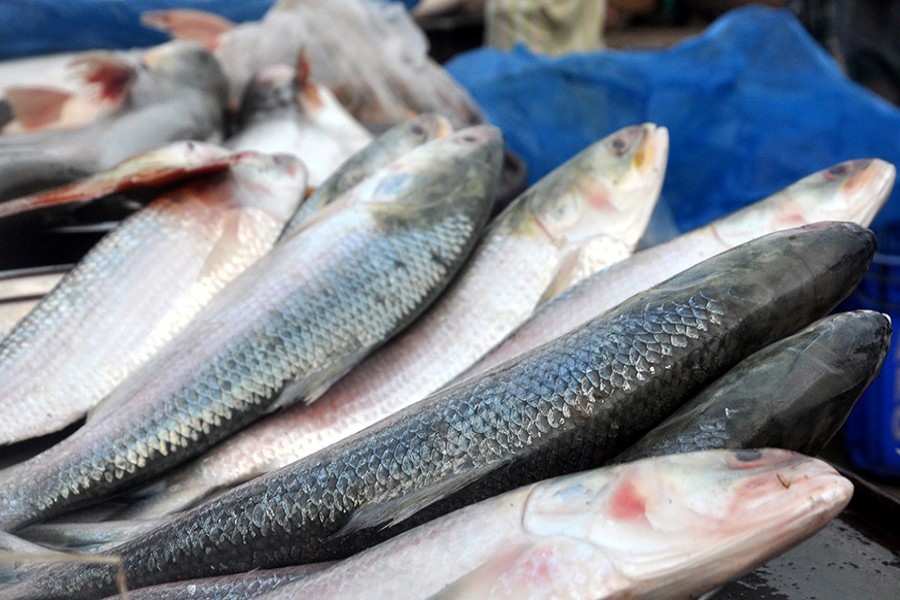The 22-day ban on Hilsha fishing is in its last leg. By the time the ban comes to an end on October 30, the authorities will not feel particularly pleased with the performance of the various agencies responsible for enforcement of the ban. Newspapers have carried out stories on not just isolated incidents of Hilsha catching but also widespread fishing in some areas in defiance of the ban.
A Bangla contemporary reported on Saturday, October 26 that at some points of the river Padma near Debogram and Daulatdia under Rajbari at least 200 fishing boats were engaged in clandestine Hilsha fishing. The picture of boats accompanied with the report corroborates the claim. The department of fisheries has readily admitted the constraints in enforcing the ban. There is a lack of manpower and fund constraint. Yet another factor, the department cites, is the high speed of fishing boat. When chased, they can evade arrest because of the faster speed of their boats. If this is so, what type of vessel does the fisheries department use -launch? The fishermen, on their part, have no modern fishing vessel other than mechanised boats. Finally, it reveals that the members of the task force are not famous for getting their acts together with sincerity.
Clearly, this understatement says volumes of the most important element required for the job. Reports carried in several newspapers earlier had it that four members of the police were arrested from a fishing boat on complicity with fishermen. Others involved could manage to flee. Now in plain language, the men in uniform responsible for keeping watch on illegal fishing allowed fishermen who could gain them over to do the fishing. The higher authorities, have however, assured of proper investigation against the erring members of the police.
This was the only such case to come to light. No one can be sure if it was an isolated incident. Yet another report had it that powerful coteries were behind fishermen fishing Hilsha in violation of the ban. Actually they are the people who are the owners of fishing boats, nets and other paraphernalia. The fishermen are engaged like bonded labourers who toil on fishing boats and most of the time take loan in advance at high interests. It is not easy for them to disoblige their mentors. Again, they also feel the pinch of unemployment for long three weeks and are not unwilling to go for income -albeit at risk of getting arrested.
By October 18 last, 62 fishermen were caught red-handed by the mobile court and sent to jail; 360,000 metre current net and 560 kilograms of fish were confiscated in the action. Evidently, the drive against the illegal fishing was much too limited. The stretch of the river Padma (under Rajbari) notorious for illegal fishing alone makes a statement contrary to the success of the enforcement of the ban. Reportedly, the boats there come up with plenty of catches ranging from 10 kilograms to 60 kilograms each.
Even if the administration is strict and sincerely tries to enforce the fishing ban, it is impossible to do so on a large river like the Padma. Round-the-clock patrolling by technologically advanced vessels by coastguards or other agencies is yet to be put in place. This is a seasonal campaign carried out for a brief period. The fisheries department is in no position to act as a vigilant body. It has to depend on various other agencies. Here the coordination is most essential. The task force should be given a solid shape so that it can perform the assigned responsibility in a coordinated manner.
It is universally agreed that without the ban during the spawning season, Hilsha could not proliferate. Even those involved in fishing during the ban know it. So, a forceful campaign to convince them of the merit of taking their nets off the water during the ban can also yield dividends.


